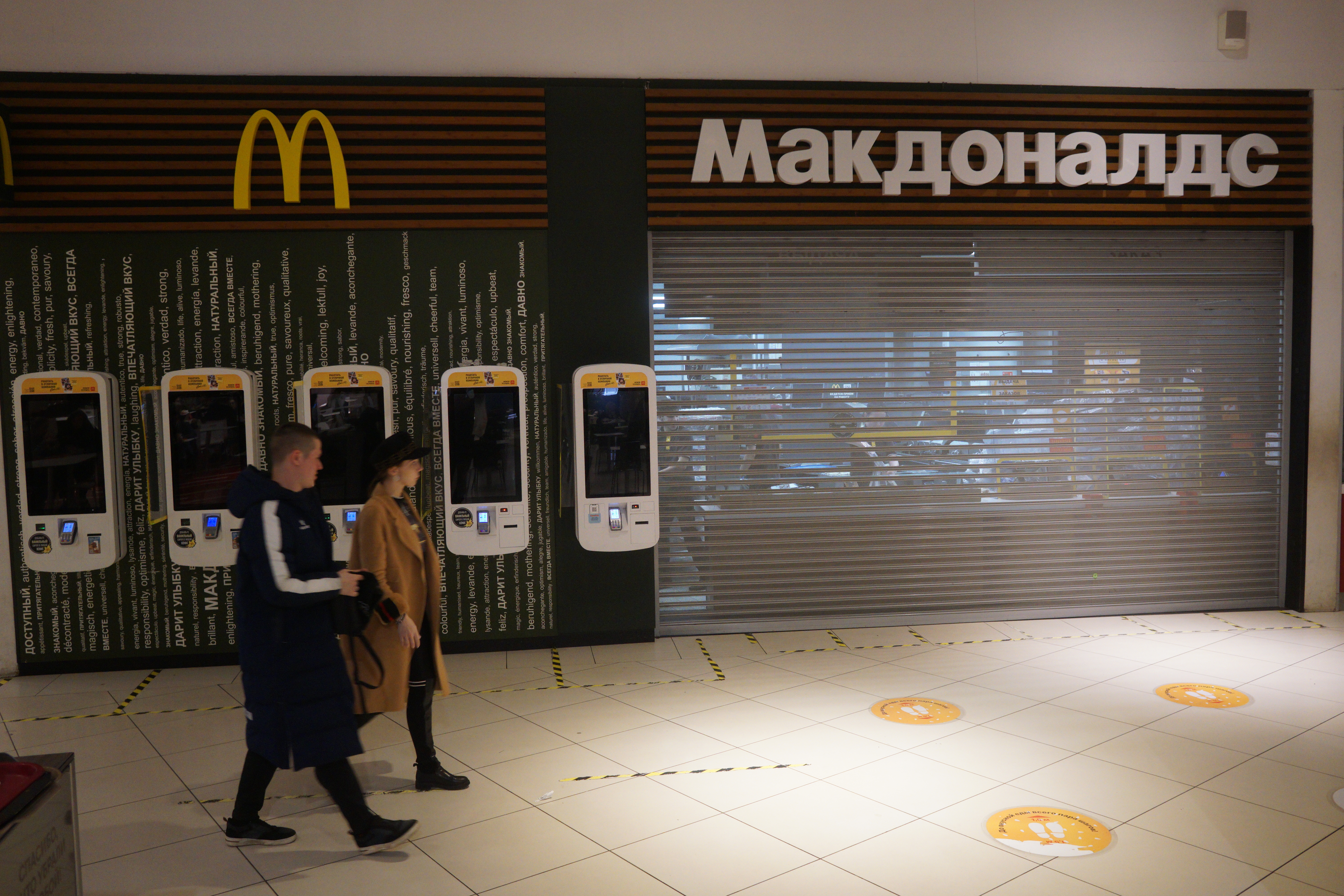Corporations: It's a big, harsh world, after all
Why is Mcdonald's backing out

A free daily email with the biggest news stories of the day – and the best features from TheWeek.com
You are now subscribed
Your newsletter sign-up was successful
The smartest insight and analysis, from all perspectives, rounded up from around the web:
More than 300 companies, including many of the world's biggest brands, have said they are leaving or suspending work in Russia since its invasion of Ukraine, said Evan Gershkovich in The Wall Street Journal. The list of prominent names stretches from Goldman Sachs and Coca-Cola to Levi Strauss and Apple. Last week, when McDonald's joined the growing exodus, Russians lined up for their last Big Macs. "Most companies have kept the door open to an eventual return." But Russian President Vladimir Putin threatened that option when he "endorsed a plan to nationalize foreign assets" — and potentially grab the intellectual property of companies that have fled. Ultimately, though, it may be Russia itself that faces the biggest risk. "Most multinationals have limited exposure" to Russia, where it has always been hard to do business. For Russia, though, further walling off the West "would take us back to 1917," said Vladimir Potanin, one of Russia's most powerful businessmen.
Corporations are often accused of paying lip service to moral questions "while they continue to chase the almighty dollar," said Peter Coy in The New York Times. This could be "a critical moment in the evolution of corporate responsibility." Just keep in mind that this is about dollars too, said Eric Rosenbaum at CNBC. Geopolitical experts see "a broader de-globalization trend" that was triggered by the 2008 financial crisis and accelerated with Donald Trump and COVID. Boardrooms must consider the chance of a widening cold war, where "the strategies being devised for Russia are the first draft of a playbook for the far bleaker prospect of potential Chinese aggression against Taiwan."
The Week
Escape your echo chamber. Get the facts behind the news, plus analysis from multiple perspectives.

Sign up for The Week's Free Newsletters
From our morning news briefing to a weekly Good News Newsletter, get the best of The Week delivered directly to your inbox.
From our morning news briefing to a weekly Good News Newsletter, get the best of The Week delivered directly to your inbox.
"The era of Russian oligarchs flaunting their wealth in European luxury hot spots" is also over, said Henry Austin at NBC News The British capital had been dubbed "'Londongrad' because of its popularity with Russia's wealthy and Kremlin-aligned elite." Since 2016, "just over $2 billion worth of U.K. property was bought by Russians accused of corruption or links to the Kremlin." Now the Russian billionaires — even the highest-profile, such as Chelsea F.C. owner Roman Abramovich — are no longer welcome. The U.K. is fast-tracking legislation that would make them reveal the property holdings hidden under their shell companies, and even their yachts are being seized at ports around the world.
So much for the "Golden Arches Theory of Conflict Prevention," said Adam Chandler in The Washington Post. In 1990, 30,000 Muscovites lined up outside their city's first McDonald's in a "watershed moment in the Cold War thaw." Economists pondered whether "common economic interests" would "supersede the causes of conflict between nations." New York Times columnist Thomas Friedman noted a few years later that two countries with McDonald's restaurants have never fought a war against each other. Obviously, that's no longer the case. It sounds quaint, but I did share the optimism, said Pierre Briançon in Breakingviews. The arrival of McDonald's in Moscow seemed to signal "that democratization and liberalization were irreversible." Three decades later, the evolution of Russia's autocracy and the departure of Western companies show that they are not.
A free daily email with the biggest news stories of the day – and the best features from TheWeek.com